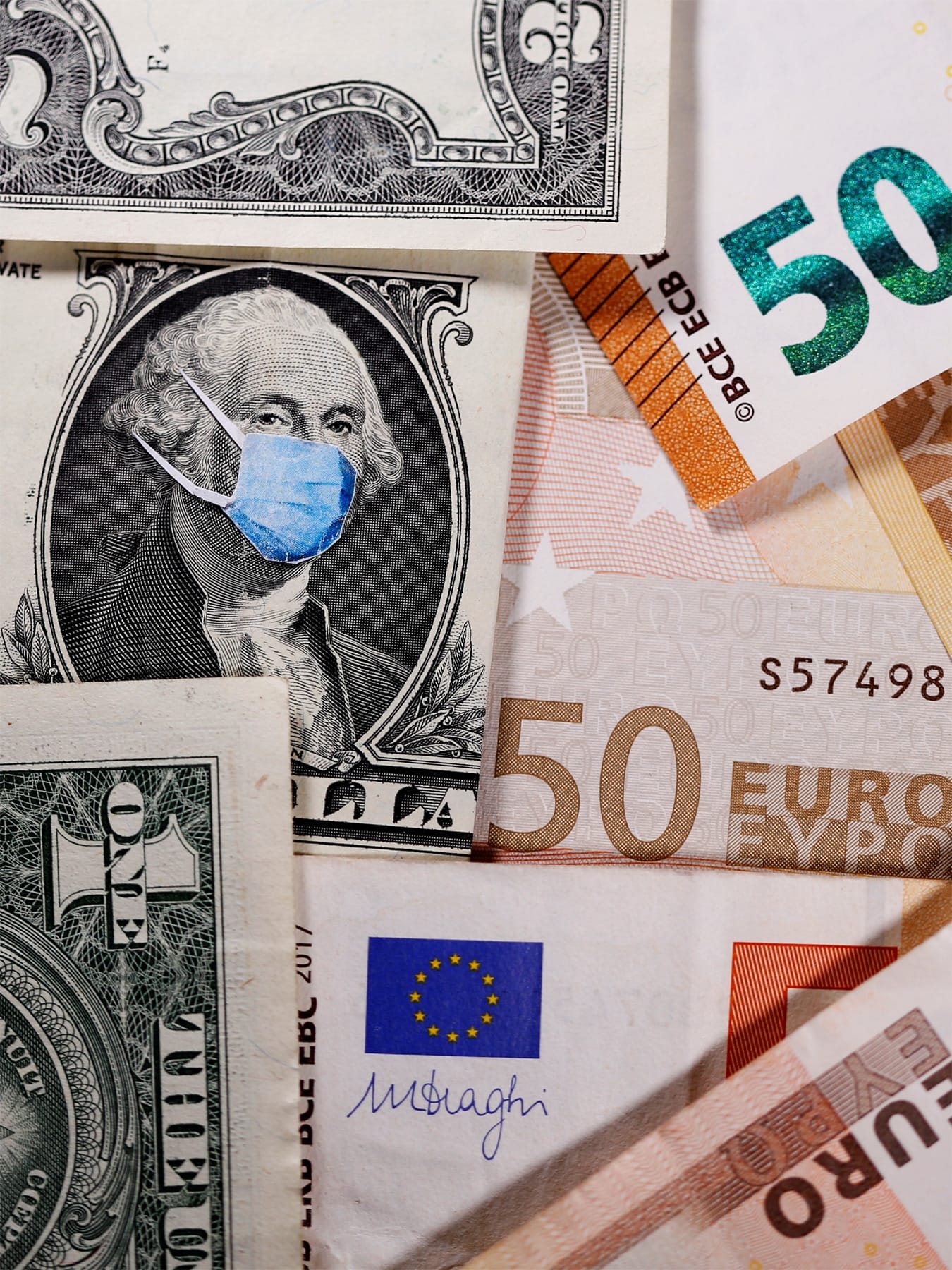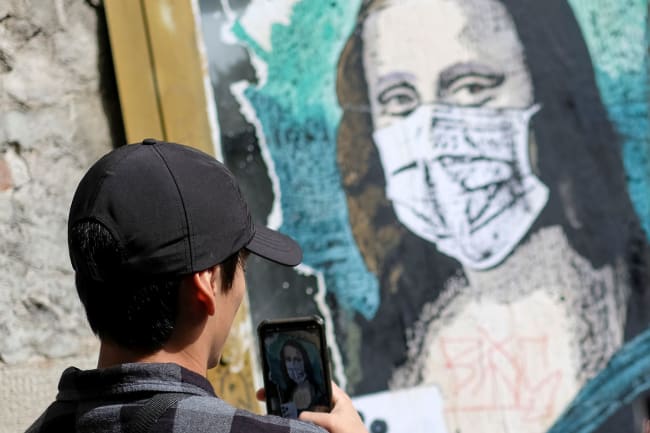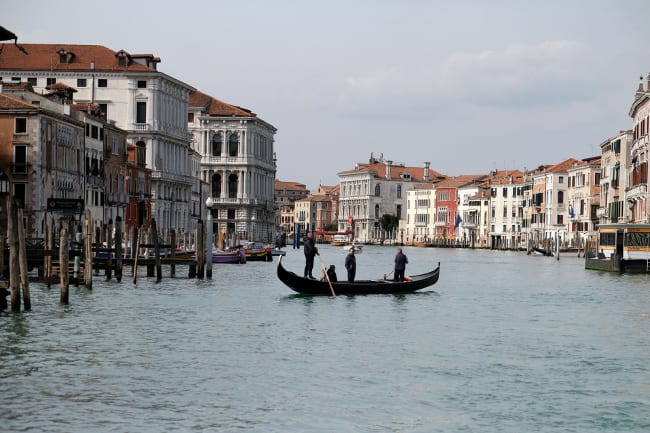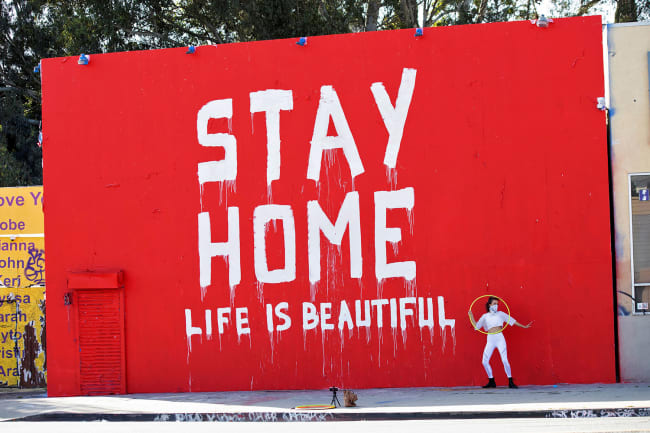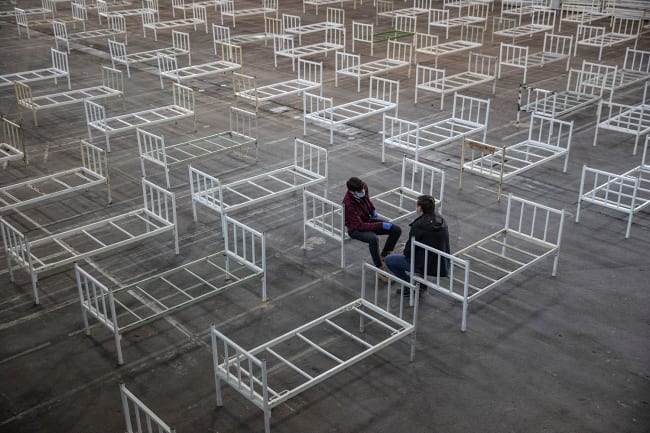The world is regrouping, and the European Union (EU) has a short political window of opportunity to decide what global role it wants to play. In February, even before COVID-19 fully hit, the EU's chief diplomat Josep Borrell said, "The European Union must develop an 'appetite for power' and must be more willing to intervene in global crises."
If a big crisis comes, we will not be prepared to face it.
Josep Borrell
In a most prescient statement, he added, "If a big crisis comes, we will not be prepared to face it." He may not have had a pandemic in mind, but clearly COVID-19 was the crisis he unknowingly eluded to—one that has challenged every plan that the new European Commission had put forward and left member states with a desire to lick their wounds, rather than an appetite for power. The current presidency, Croatia, must deal with the complex, short-term response. The next two presidencies—Germany and Portugal—will need to take a longer-term geopolitical view and ask, who if not us?
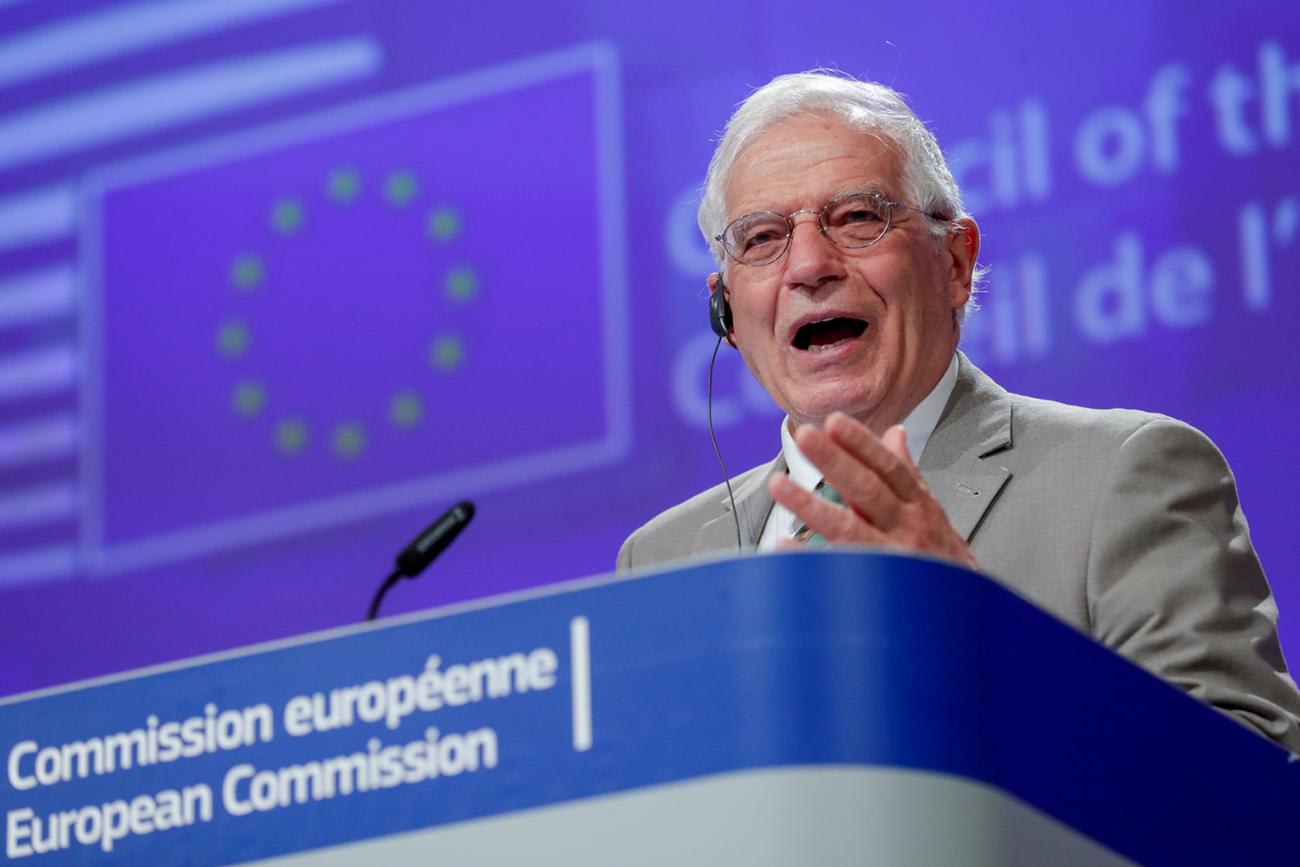
The COVID-19 crisis is so much more than a health crisis—and while EU health ministers are still challenged to deliver at a national level and cooperate beyond their own borders, a range of other political bodies are also involved in the response. In many of the committees and fora convened to deal with the pandemic, the differences between the members are becoming increasingly difficult to overcome—no more can we automatically expect joint statements at the end of the meetings. For example, the United Nations Security Council convened a closed-door meeting in early April on the COVID-19 pandemic without reaching an agreement.
The same is true for the recent Group of Seven (G7) meeting of heads of state. Each country provided its own interpretation of the outcomes. President Donald J. Trump's decision to suspend World Health Organization (WHO) funding clearly shows the need for multilateral drivers in the international arena. Absent American leadership, the EU has to take on an active role in shaping the international response it can no longer rely on others to craft. A European call for equitable access to quality health care, safe vaccines, medical and human resources, as well as a comprehensive COVID-19 strategy on a global level would be more than welcome at the next World Health Assembly in May.
President Donald J. Trump's decision to suspend WHO funding clearly shows the need for multilateral drivers in the international arena
Germany—who will hold the next EU presidency as of July 1, 2020—tries to act as a champion for multilateralism. The German Chancellor Angela Merkel came out strongly in support of the WHO, as did others at the G7 meeting. As the transatlantic alliance no longer holds, a group of countries is meeting instead as the Alliance for Multilateralism initiated by Germany and France. They, too, positioned themselves clearly in opposition to the attacks by the United States on the WHO. A joint statement they released could not have been more in contrast to the echoes of America First coming from the United States. "We support the United Nations' call for shared responsibility and global solidarity in response to the impacts of COVID-19, and especially the role of WHO in the coordination of the health response to the epidemic."
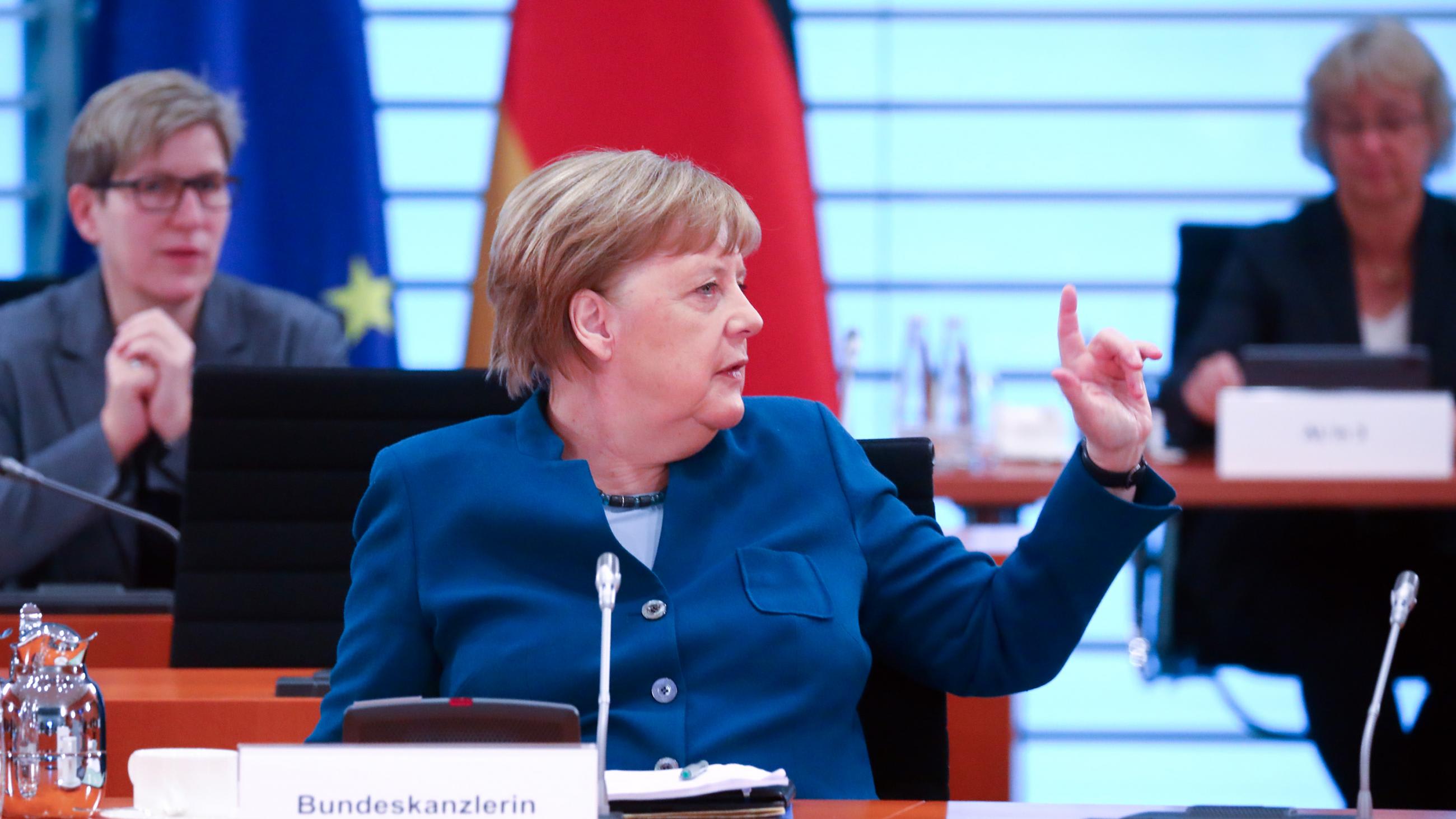
Despite these calls for international initiatives, a strategic mid- and long-term engagement aimed at preparedness and health systems strengthening beyond financial short-term measures is not yet visible.
COVID-19 Is Everywhere: Stepping Into the Global Health Vacuum
There is one way in which European states already embody this multilateral commitment to shared responsibility. The European Commission under Ursula von der Leyen has positioned itself as a geopolitical entity, and through COVID-19 there is the opportunity to take a deep breath and give expression to that appetite for power. Because, as one commentator expressed it, acting purely based on technical cooperation, values, and multilateralism will not, on its own, bring about change for the better.
Europe is set to face a severe recession after the pandemic is over, and this may put a heavy burden on national budgets
The EU has the opportunity to contribute to a new understanding of power as shared power within its external relations. A key step along the way is to find consensus internally, on April 23, 2020, when EU leaders will meet by videoconference to focus on the EU's recovery strategy from COVID-19. Four priorities will be discussed: the functioning of the internal market, a massive investment strategy, the EU's external actions, and the EU's resilience and governance. Europe is set to face a severe recession after the pandemic is over, and this may put a heavy burden on national budgets. In this regard, Angela Merkel has indicated good will to go for a bigger EU budget and the issuance of joint debt via the Commission. No strong geopolitical external action is possible without a balance of power within—yet the world will be dependent on significant financial and political support from European coffers.
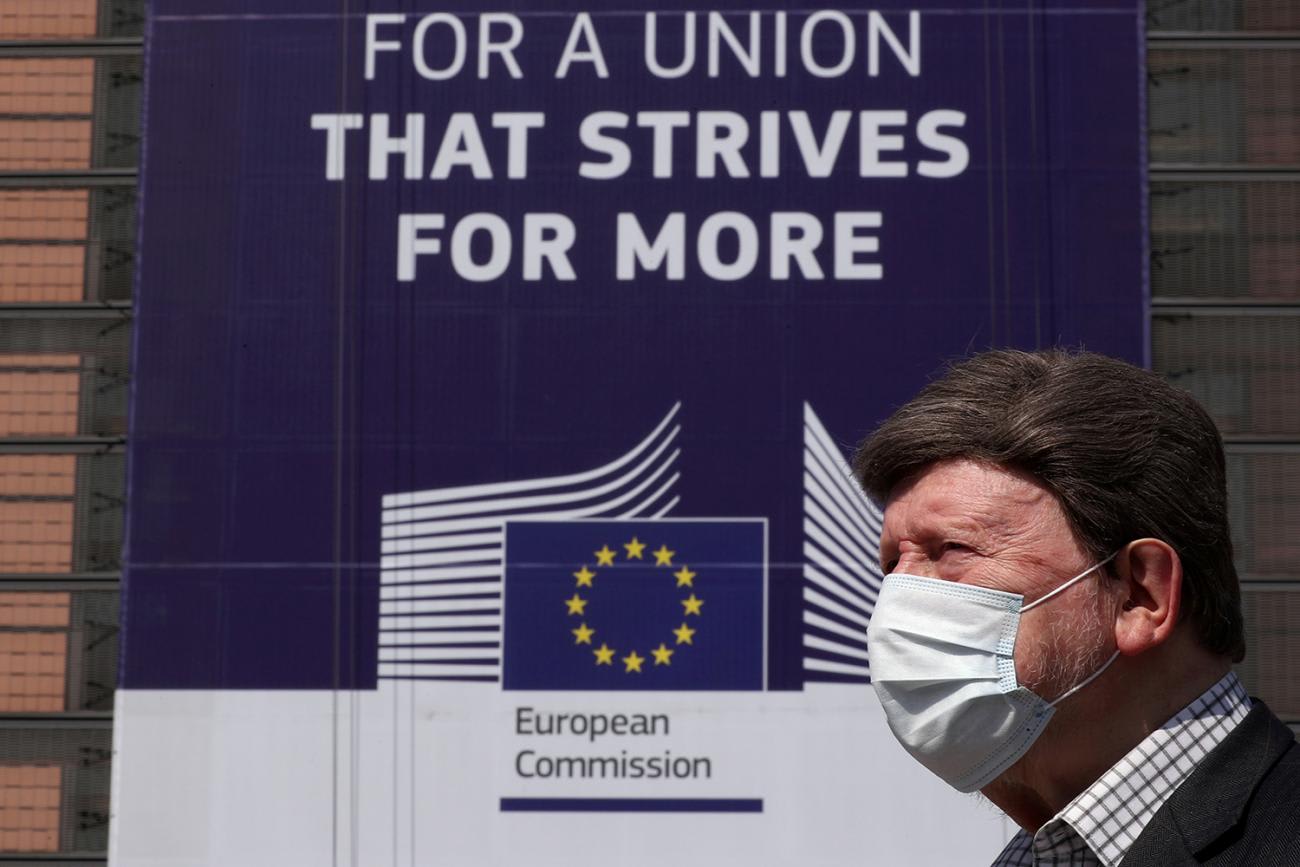
Meanwhile there are key meetings that provide some EU member states as well as the European Commission with opportunities to set directions. Indeed, the fact that COVID-19 touches on so many global issues and is discussed in so many fora provides an inroad for a coherent approach across policy areas. The great need for cooperation and solidarity provides space to give up positions that were sacrosanct until recently—with health as the entry point. One big step has been the Group of Twenty (G20) decision to suspend the debt repayments of poor countries to give them fiscal space to respond to the crisis. A group of 165 global leaders called on the G20 to ensure recovery from COVID-19 in all countries and calculated this would require $150 billion to fight the twin medical and economic challenges.
The great need for cooperation and solidarity provides space to give up positions that were sacrosanct until recently—with health as the entry point
Conversely, international fora can also be a stumbling block due to diverse interests. The G20, where Saudi Arabia holds the presidency, has been overwhelmed by the need to respond to the coronavirus crisis. It organized an Extraordinary Leaders Summit on COVID-19 on March 30, and also discussed COVID-19 at a meeting of G20 finance ministers, a meeting of G20 trade ministers, and several meetings of health ministers. However, the recent health ministers meeting on April 19 was rather disappointing, including in its outcomes no reference to the work of WHO, the gendered dimension of COVID-19, or the involvement of nonstate actors. As if to underline these glaring gaps, the concluding press conference was canceled. The lack of a consensus statement probably indicates that at least one member could not be brought on board.
In another policy arena, the North Atlantic Treaty Organization (NATO) defense ministers are discussing medium- and long-term consequences of the pandemic, addressing issues such as the provision of medical equipment. Moreover, NATO planes are helping deliver medical supplies to Slovakia and Romania. The NATO secretary has warned that "We have to make sure that the health crisis doesn't become a security crisis," and here, too, big issues of financial investment loom with strong geopolitical consequences as European military capabilities might severely shrink in the wake of COVID-19, much like in the aftermath of the financial crisis in 2008.
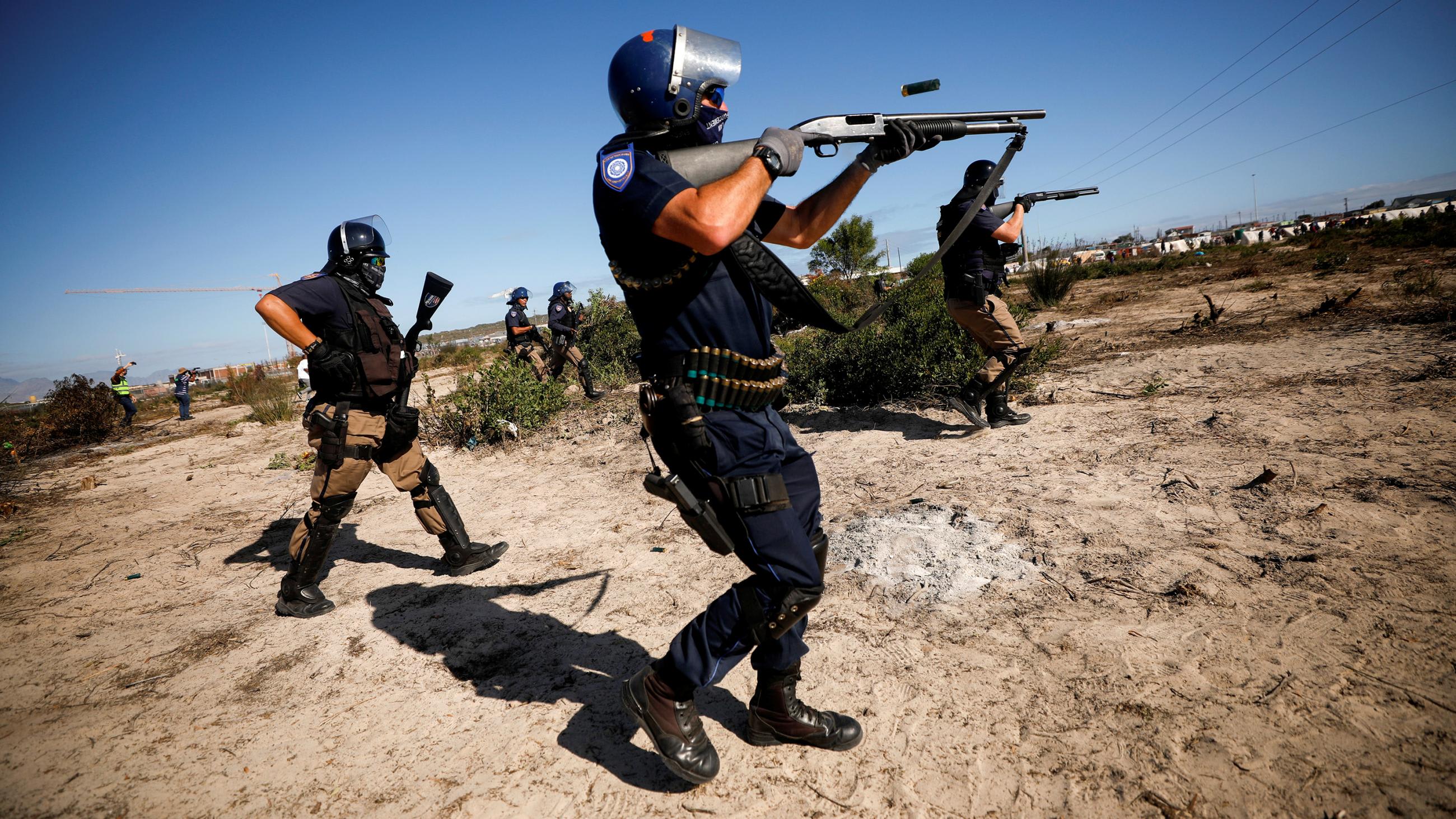
Already we also observe clear setbacks due to COVID-19, as other policy initiatives get put on the back burner. On EU level, the Commission is taking a delay of human and minority rights initiatives into consideration. This would hamper a successful crisis management as these groups are especially affected by the health crisis. On international level, reports of police and military violence while enforcing lockdowns are disturbing. And the refugee crisis in Greece will not go away as a refugee camp is put under quarantine and human right organizations call for closing and evacuating the camps.
COVID-19 in Europe: Jointly Phasing Out—No Sprint but a Marathon
The EU has put out its roadmap toward lifting COVID-19 containment measures, and it remains to be seen if member states will follow the proposed guidelines. As naming is framing, it is good to see that the paper wasn't named exit strategy, implying a definite end of the crisis when there is none any time soon. A coordinated and informed phasing out seems to be the best alternative in view of dynamic and context-specific situations.
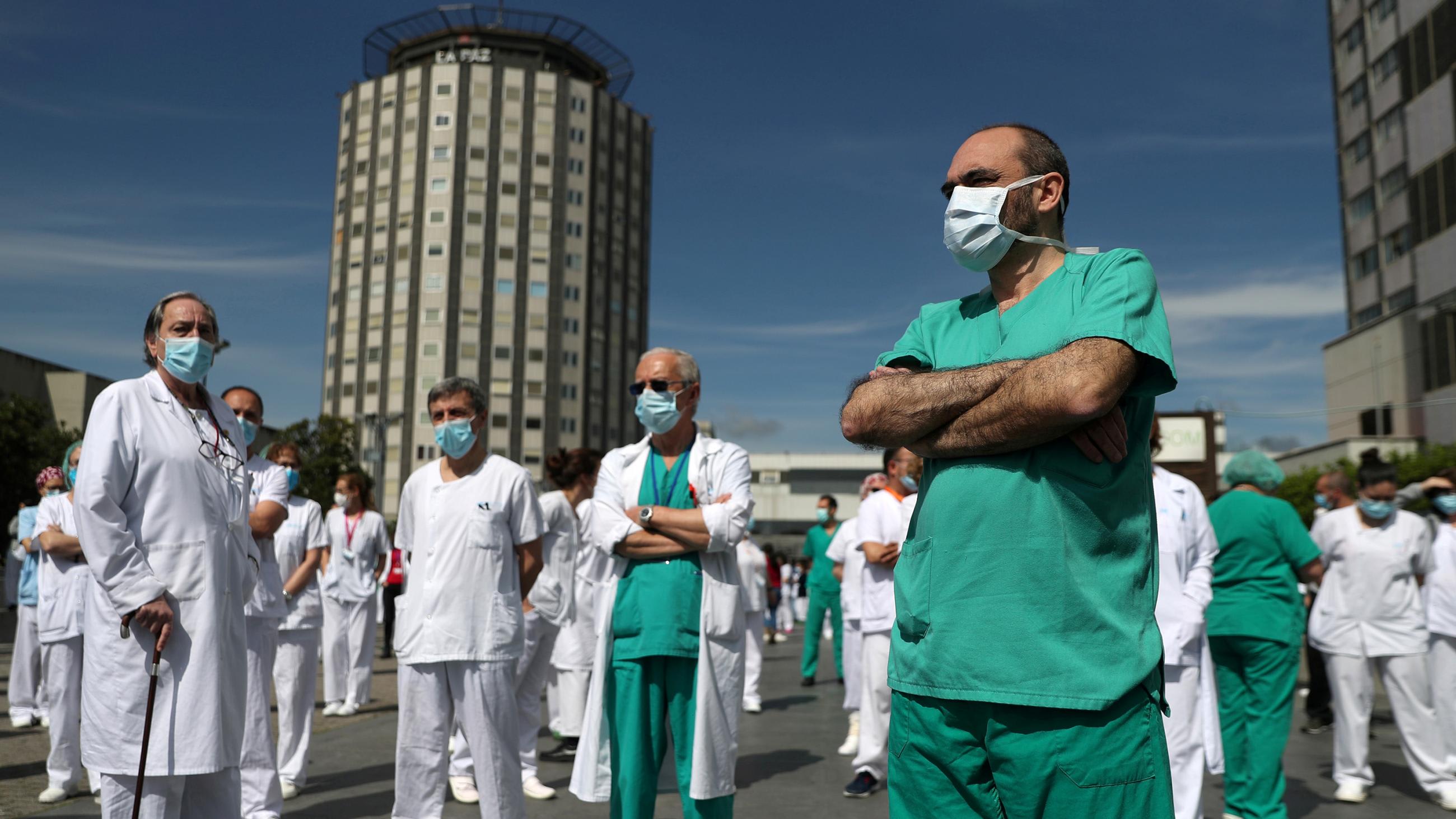
As we will have to live with the virus nationally, regionally, and globally, the EU can provide an added value for member states. This added value might be expressed in European initiatives advanced in the roadmap, such as centralized data collection and modeling work, a pan-EU reference app, a network of COVID-19 reference laboratories, or an acceleration of the regulatory steps from clinical trial to market authorization for future medicines and treatments.
Social impacts are getting even more relevant if we realize this is not a sprint but a marathon
In addition, EU leaders will also take forward the Eurogroup's latest proposals. The package is composed of three immediate safety nets for workers, businesses, and member states worth €540 billion. It also prepares the ground for a recovery fund to relaunch the economy and ensure solidarity with those member states most affected. However, the social impact, which is increasingly recognized at the EU level, has to be considered within a phased approach. Here the EU could deliver an added value by coordinating and gathering social impact assessments across Europe. The WHO-INTEGRATE framework for public health interventions would be good point of reference. Social impacts are getting even more relevant if we realize this is not a sprint but a marathon.
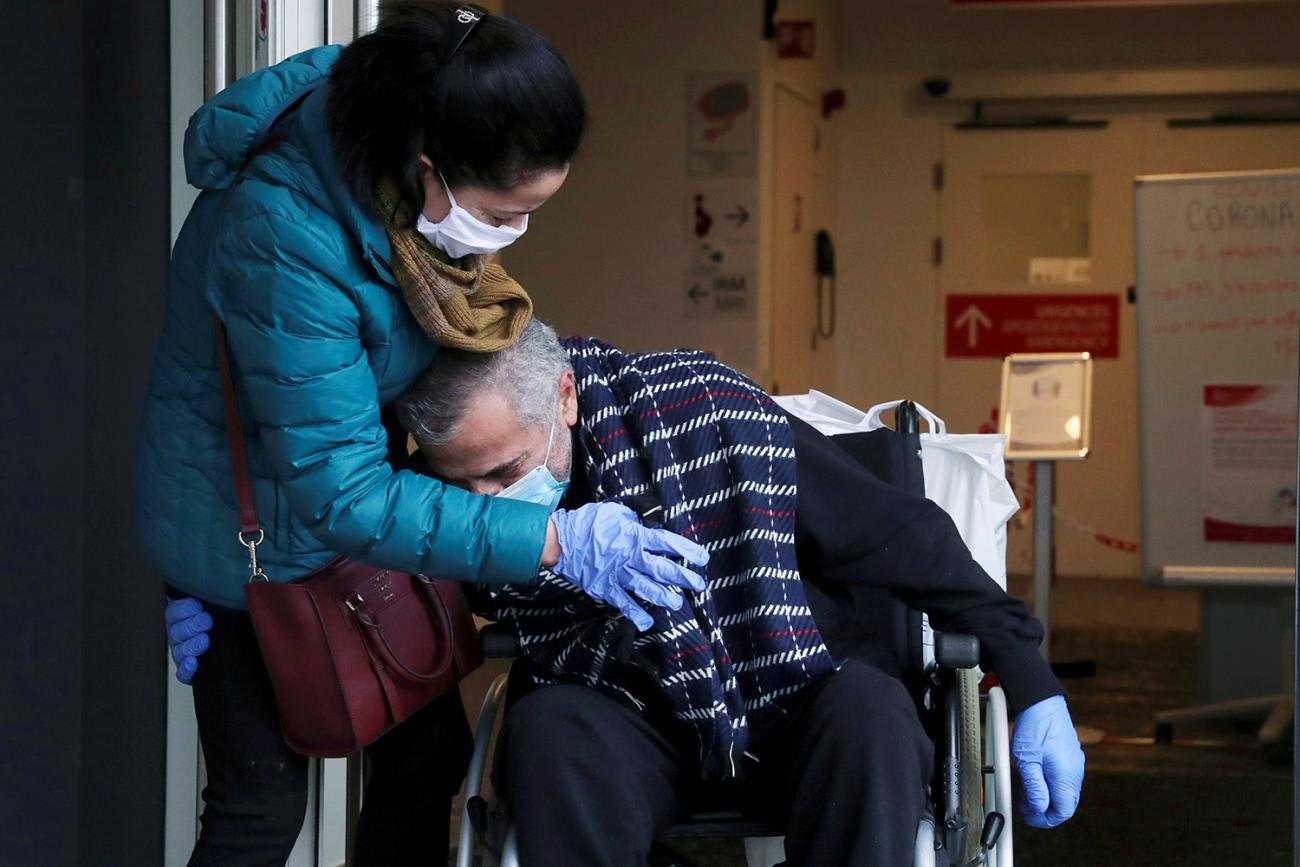
COVID-19 in the World: Intensifying Alliances
Even before COVID-19, we had a global health leadership vacuum and a completely underfunded World Health Organization—both hampering a comprehensive global response. The EU and member states have to financially and politically strengthen the WHO in the current crisis and in the long run. Developing and intensifying alliances with a distinct agenda and narrative is key to break free from rivalries and dynamics of global players. In this respect, the COVID-19 outbreak might activate efforts to embrace a strategic autonomy of the EU primarily in global health, but this might equally trigger spillover effects to other sectors.
EU and member states have to financially and politically strengthen the WHO now in the current crisis and in the long run
It becomes clearer every day that the EU has to proactively engage in international responses to COVID-19 guided by a notion of shared power. In this vein, it is reassuring to see the EU announcement of securing €15.6 billion from existing external action resources for a global response, the announcement of President von der Leyen to initiate an online pledging conference on May 4, and a joint article signed by eighteen African and European leaders calling for a debt moratorium and a pan-African scientific and political mechanism to ensure a fair allocation of tests, treatments, and vaccines once they are available. The African Union's agency expressed, for instance, by its continental approach and the set-up of Special Envoys of the African Union to mobilize international support has to be met by a European response as a reliable partner in the short and long term.
"We are all in this together" serves as a just and appropriate driver for immediate responses but has to be complemented by a more strategic partnership and long-term initiatives. The African Union–EU Summit may well be the starting point for engaging in an inclusive dialogue on continental approaches to sustainable health systems strengthening, medical and human resources for health, or the development of flexible social protection systems, including the involvement of nonstate actors. A cross-regional sharing of experiences has to be introduced for the field of global health, and now is the time to jointly develop such a framework. A joint transformation towards sustainability might encourage interregional agency in global health and beyond. It is no longer the time to fall back into a narrative describing the willingness to help, but move to a commitment to shape together.
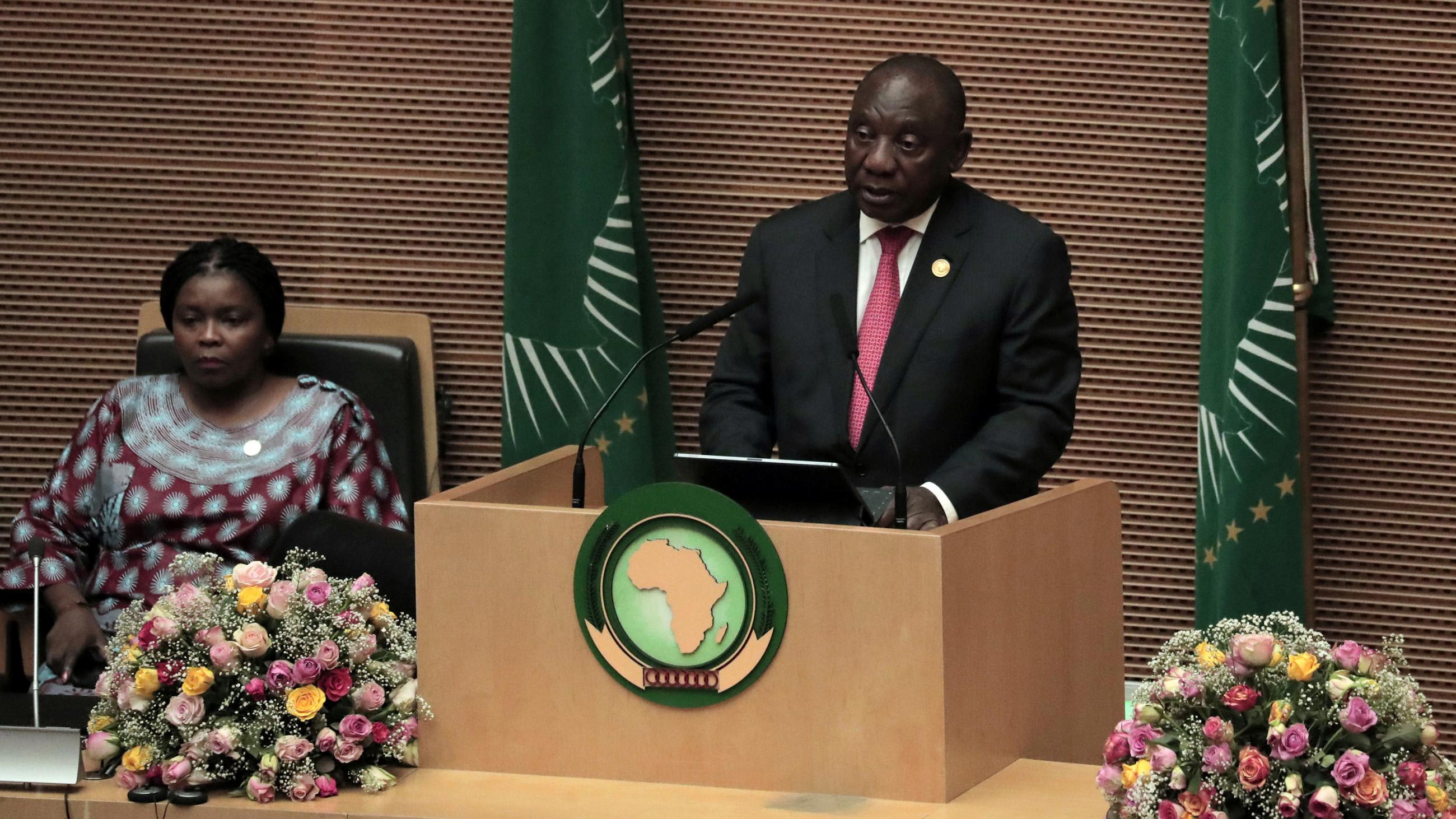
German EU Presidency: Mainstreaming Global Health Wisely
The German foreign minister announced a "corona presidency," which might be a misleading term but hits the mark on the fact that multi-sectoral and multileveled impacts of COVID-19 will be central for the German EU presidency. It is crucial to install key narratives for the presidency, and European and global solidarity are two of them. A central lesson from the COVID-19 crisis is that health system strengthening is key for pandemic preparedness. Thus, European and international approaches to health system strengthening have to play a central role in the German presidency and the coming presidencies by Portugal and Slovenia.
These initiatives have to be jointly developed and sustained through the presidency trios
As myriad policy sectors are affected by the COVID-19 crisis, health has to be made mainstream, disclosing the linkages and scope of actions at the intersections. Germany should not commit the same mistake as in the beginning of the crisis looking only at the regional level—but rather lift its gaze towards the international sphere. Jointly shaping global partnerships and frameworks of cooperation is vital. For all this, the German presidency can only be the starting point or a driver. These initiatives have to be jointly developed and sustained through the presidency trios. Portugal as a country—also very committed to the United Nations and to multilateralism—has its work cut out when it takes over from Germany in January 2021.
